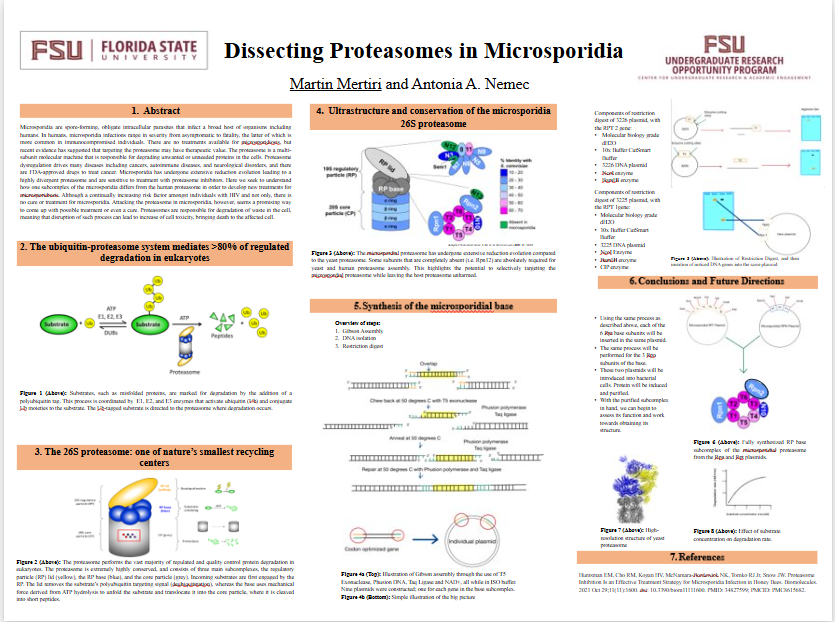Research Symposium
25th annual Undergraduate Research Symposium, April 1, 2025
Martin Mertiri Poster Session 2: 10:45 am - 11:45 am/ Poster #201

BIO
I am a pre-medical student at Florida State University, with future intentions completing medical school. My hometown is Tampa, and my research interests include medical related subjects such as drug production and understanding of physiological processes.
Dissecting Proteasomes in Microsporidia
Authors: Martin Mertiri, Antonia NemecStudent Major: Biochemistry
Mentor: Antonia Nemec
Mentor's Department: Antonia Nemec Mentor's College: Antonia Nemec Co-Presenters:
Abstract
Microsporidia are spore-forming, obligate intracellular parasites that infect a broad host of organisms including humans. In humans, microsporidia infections range in severity from asymptomatic to fatality, the latter of which is more common in immunocompromised individuals. There are no treatments available for microsporidiosis, but recent evidence has suggested that targeting the proteasome may have therapeutic value. The proteasome is a multi-subunit molecular machine that is responsible for degrading unwanted or unneeded proteins in the cells. Proteasome dysregulation drives many diseases including cancers, autoimmune diseases, and neurological disorders, and there are FDA-approved drugs to treat cancer. Microsporidia has undergone extensive reduction evolution leading to a highly divergent proteasome and are sensitive to treatment with proteasome inhibitors. Here we seek to understand how one subcomplex of the microsporidia differs from the human proteasome in order to develop new treatments for microsporidiosis. Although a continually increasing risk factor amongst individuals with HIV and not only, there is no cure or treatment for microsporidia. Attacking the proteasome in microsporidia, however, seems a promising way to come up with possible treatment or even a cure. Proteasomes are responsible for degradation of waste in the cell, meaning that disruption of such process can lead to increase of cell toxicity, bringing death to the affected cell.
Keywords: Martin Mertiri, Proteasomes, Microsporidia

